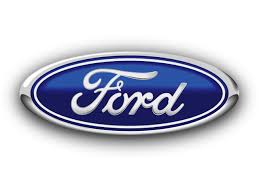Focus L4-2.0L SOHC VIN P (2000)

Brake Shoe: Customer Interest
Brakes - Rear Drum Brake Squealing Noise
TSB 07-14-4
07/23/07
REAR BRAKE SQUEAL
FORD:
2000-2007 Focus
This article supersedes TSB 07-12-4 to update the Parts List for anti-lock brake system (ABS) equipped vehicles.
ISSUE
Some 2000-2007 Focus vehicles (excluding vehicles equipped with rear disc brakes) may exhibit a long or extended squealing noise from the rear drum
brakes during end of stop (medium to low initial speed with light brake pressure applied).
ACTION
Follow the Service Procedure steps to correct the condition.
DIAGNOSTIC EVALUATION
Understanding brake noise is key in making a proper diagnosis. However, some sounds are a normal part of brake operation, while others may indicate a
problem. To aid in making a proper diagnosis, it is very helpful to know the answers to key questions.
Key Questions:
^
Where does the brake noise seem to originate, front or rear?
^
Does it happen when the brakes are cold, or after the vehicle has been driven for a period of time?
^
At what speed does the noise occur?
^
Does it occur on heavy or light braking applications?
^
Does it happen after many stops, or only after the first few stops?
^
Does it happen in wet conditions (such as rain, snow, humid or after a car wash)?
^
Do any ABS or Traction Control lamps illuminate when the noise is heard?
Additional Drum Brake Noise Factors:
1.
Excessive brake dust inside the brake drum.
a.
Removing the drum and cleaning the brakes may eliminate certain types of squeal noises; use Motorcraft(R) Metal Brake Parts Cleaner or
brake washer to clean brake components. After following the procedures in Workshop Manual (WSM), Section 206-02 and any applicable
safety procedures mandated by OSHA or other agencies regarding the servicing of brakes.
CAUTION
NEVER USE COMPRESSED AIR TO CLEAN
BRAKE COMPONENTS.
2.
Poor heel and toe contact between the brake shoes and brake drums.
a.
Check brake drum diameter and brake lining discard thickness to determine if it is within specifications as noted in WSM, Section 206-02.
b.
Check brake shoe adjustment. Refer to WSM, Section 206-02 for shoe adjustment procedure and parking brake adjustment procedure.
3.
Weak, loose or damaged brake springs and hardware. Weak, loose or damaged springs may allow vibrations between the brake shoes and the
raised pads on the backing plates to occur, resulting in brake noise.
NOTE
SILICONE BRAKE CALIPER GREASE AND DIELECTRIC COMPOUND MUST BE APPLIED TO THE BRAKE SHOE CONTACT POINTS
ON THE BRAKE BACKING PLATE.
